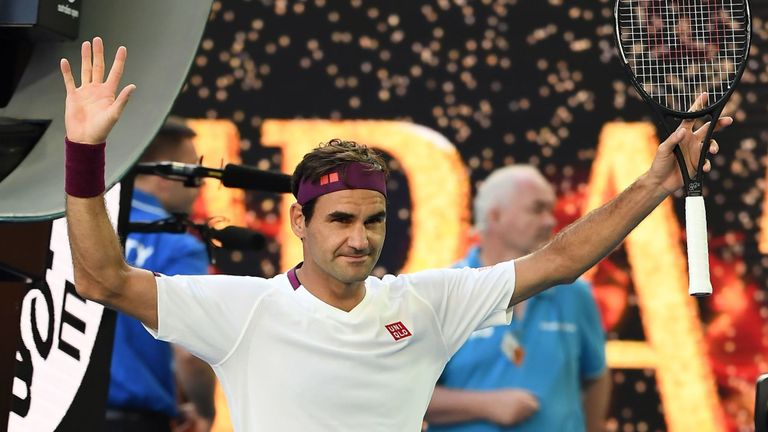Is Novak Djokovic the greatest Tennis player of all time?
The debate over the greatest tennis player of all time (GOAT) has persisted for years, especially in the era of the “Big Three” – Roger Federer, Rafael Nadal, and Novak Djokovic.
As Djokovic continues to break records, many tennis enthusiasts are leaning toward him as the front-runner for the GOAT title. While legends like Ken Rosewall, Andre Agassi, and John McEnroe have left indelible marks on the game, Djokovic’s dominance in the modern era has made him a compelling contender for the top spot.
Ken Rosewall: Longevity and Versatility
Ken Rosewall’s career spanned both the pre-Open and Open Eras, making him one of tennis’s enduring greats. With 133 career titles, including eight Grand Slam singles titles and 15 pro majors, Rosewall’s legacy is undeniable. His last Grand Slam victory came at age 37, a testament to his exceptional fitness and mental strength. While Rosewall’s career set the stage for future champions, it is Djokovic’s ability to thrive in an era of increased competition and advanced athleticism that sets him apart from earlier legends.
UDUAK OSCAR Comments: “Rosewall’s longevity is remarkable, but Djokovic’s sustained excellence across surfaces in the face of far tougher competition elevates him. In today’s era, it’s not just about lasting long but about consistently defeating the best, and Djokovic has mastered that art.”
Andre Agassi: Revolutionizing the Game
Andre Agassi’s career, with its peaks and valleys, showcased his resilience and talent. With eight Grand Slam titles and an Olympic gold medal, Agassi transformed tennis both on and off the court. His fierce groundstrokes and charismatic presence left an indelible mark on the sport. However, Djokovic has redefined consistency and longevity, surpassing Agassi’s achievements in both Grand Slam wins and overall dominance.
UDUAK OSCAR Comments: “Agassi was a trailblazer in the 90s, but Djokovic has taken the blueprint of consistency and longevity to a whole new level. Agassi’s emotional struggles off the court also contrast with Djokovic’s laser-like focus, which has allowed him to achieve more.”
John McEnroe: Talent and Controversy
John McEnroe’s fiery personality and exceptional shot-making made him one of the most memorable players in tennis history. With seven Grand Slam singles titles and 105 career titles, McEnroe was a force on fast surfaces. But Djokovic’s ability to excel on all surfaces and his calm, methodical approach under pressure make him a more complete player compared to McEnroe.
UDUAK OSCAR Comments: “McEnroe’s brilliance on court was often overshadowed by his temperament, while Djokovic excels at controlling his emotions when it counts the most. His success on all surfaces also shows a completeness that McEnroe never achieved.”
Jimmy Connors: Unrelenting Dominance
Jimmy Connors’ 109 ATP titles still stand as a record, and his eight Grand Slam titles across a remarkable 24-year career highlight his durability. Connors was the face of 1970s and 1980s tennis, but Djokovic has surpassed his legacy in Grand Slam titles, achieving even greater consistency at the highest level of the game.
UDUAK OSCAR Comments: “Connors’ record of 109 titles is still impressive, but Djokovic’s quality of competition, his all-surface prowess, and his Grand Slam tally place him ahead in the conversation. Dominance isn’t just about winning but winning against the toughest.”
Ivan Lendl: The Silent Giant
Ivan Lendl dominated the 1980s with his powerful groundstrokes and relentless fitness. His eight Grand Slam titles and 144 career titles are a testament to his era’s dominance. Lendl’s quiet demeanor on the court contrasts with Djokovic’s complete mastery of the mental game, where he thrives under pressure, making the Serbian an all-around superior player.
UDUAK OSCAR Comments: “Lendl’s physicality and precision in the 80s were unmatched, but Djokovic has added more layers—especially mental resilience under pressure. His ability to solve problems on the court, mid-match, makes him a far more dynamic player.”
Bjorn Borg: The Icy Swede
Bjorn Borg retired early but left behind an unforgettable legacy with 11 Grand Slam titles. His five consecutive Wimbledon titles and his incredible composure in high-pressure situations made him a fan favorite. However, Djokovic’s ability to sustain success over nearly two decades and across all surfaces edges him closer to the GOAT title, especially as Borg retired at his peak.
UDUAK OSCAR Comments: “Borg’s early retirement leaves us wondering what could have been, but Djokovic’s ability to remain at the top for so long across multiple generations of players gives him the edge. Borg was iconic, but Djokovic has become unstoppable.”
Pete Sampras: The Grass-Court King
Pete Sampras held the title of GOAT when he retired with 14 Grand Slam titles, dominating the 1990s. While his serve-and-volley game was perfect for grass courts, his struggles on clay prevented him from completing a career Grand Slam. Djokovic, on the other hand, has conquered all four major surfaces and won every Grand Slam tournament multiple times, placing him ahead of Sampras in the GOAT conversation.
UDUAK OSCAR Comments: “Sampras ruled the 90s, but Djokovic’s dominance on all surfaces puts him on another level. His adaptability, particularly on clay where Sampras struggled, solidifies Djokovic’s position ahead of Pete in the GOAT debate.”
Rod Laver: The Rocket
Rod Laver remains the only player to win two calendar-year Grand Slams, cementing his status as a tennis legend. His 200 career titles and dominance in the 1960s are unmatched. Yet, the modern game is faster, and Djokovic has thrived in an era of intense competition, outlasting many top contenders for almost two decades.
UDUAK OSCAR Comments: “Laver’s two calendar Grand Slams are phenomenal, but Djokovic has faced deeper fields and modern-day fitness demands. Djokovic winning in today’s highly competitive and technologically advanced era makes his case stronger.”
Roger Federer: The Original GOAT
Roger Federer, with his 20 Grand Slam titles and elegant playing style, was widely regarded as the greatest player of all time for many years. Federer dominated with consistency, finesse, and an all-court game. Yet, Djokovic has since overtaken Federer in several key records, including Grand Slam titles and weeks at number one, solidifying his case for GOAT status.
UDUAK OSCAR Comments: “Federer’s elegance and early dominance made him the GOAT for many. However, Djokovic’s superior head-to-head record and his ability to evolve and stay ahead of younger talents now tilt the GOAT scale in his favour.”
Rafael Nadal: The King of Clay
Rafael Nadal, with 22 Grand Slam titles, is another worthy contender. His dominance on clay is unmatched, and his relentless fight on court mirrors Djokovic’s mental toughness. However, Djokovic’s success on all surfaces, including his head-to-head superiority over both Federer and Nadal, strengthens his claim to the GOAT title.
UDUAK OSCAR Comments: “Nadal’s unrivaled clay-court dominance is legendary, but Djokovic’s overall versatility, plus his edge in their head-to-head battles, gives him the upper hand. Nadal’s intensity is matched only by Djokovic’s complete package.”
Djokovic’s Case for GOAT
Novak Djokovic currently holds the record for the most Grand Slam singles titles, weeks as world number one, and has a superior head-to-head record against both Federer and Nadal. His ability to perform on all surfaces, his mental fortitude in high-pressure situations, and his longevity at the top of the sport make him the frontrunner in the GOAT debate. With the competition intensifying over the years, Djokovic has consistently come out on top, solidifying his case as the greatest tennis player of all time.
The GOAT debate may not be settled until Djokovic retires, but his unparalleled achievements in the modern era already make him a convincing candidate for the greatest tennis player in history.










